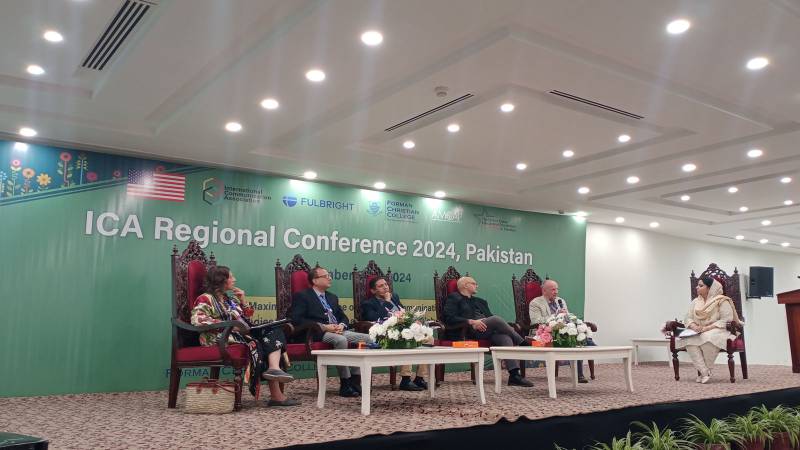
Pakistan, much like other nations, is engaged in intense political debates, but experts argue that one crucial issue is being overlooked: the impact of climate change. From rising temperatures and melting glaciers to floods, droughts, and thick yellow smog, the environmental crisis is rapidly escalating. Experts blame the release of carbon monoxide into the atmosphere, which disrupts natural cycles, from annual rainfall to premature births.
Dr. Firasat Jabeen, head of the Mass Communication department at Forman Christian College University, Lahore, highlighted the urgency of the issue during a recent climate and communication conference. “We have communication experts, journalists, and researchers discussing the nexus of climate and communication. These experts, both local and international, are enlightening participants with their research and expertise on the impacts of climate change, especially in a nation as populous as Pakistan,” Dr. Jabeen said. “We hope this event will equip young leaders with the knowledge to tackle these challenges in the future.”
Lahore, a 5,000-year-old city, is facing severe environmental degradation, with women bearing the brunt of the crisis. Climate change has disrupted healthcare centers, educational institutions, and infrastructure, limiting women's mobility and access to basic services. Local governments tend to focus on immediate issues, but larger environmental concerns are often neglected.
“We don't have access to clean water. Arsenic-laden water and inadequate filtration plants are only worsening the situation. Irregular urbanization is making things worse,” said Ms. Imrana Tiwana, a climate expert, architect, and convener of the Lahore Bachao Tehreek (Save Lahore Movement). “Climate change has already affected 33 million people in Pakistan, displacing 7.6 million and causing over 2,000 deaths. The country has faced more than $30 billion in losses in recent years. We need both micro and macro-level planning to address this issue.”
Professor Dr. Altafullah Khan, Dean of the Faculty of Humanities at FCCU, pointed out that while industries in the West bear significant responsibility for climate change due to their carbon emissions, the Global South, including Pakistan, continues to suffer the consequences. “The nations responsible for this global crisis must acknowledge their role and help rectify the damage they have caused,” Dr. Khan said.
Marwan M. Kraidy, Dean and CEO of Northwestern in Qatar, emphasized that climate change coverage often lacks long-term sustainability planning. “Media outlets cover the immediate effects of climate change, like forest fires, but fail to address the deeper causes and long-term solutions,” Kraidy said. He urged journalists to better understand environmental sciences to present more informed and relatable stories that resonate with the public.
Dr. Silvia Machado, Assistant Professor of Environmental Sciences at FCCU, agreed that effective climate change coverage must use simple, accessible language to reach the masses. “Journalists should avoid jargon and use local examples to explain how climate change affects families, especially women. Academia can play a key role in filling the knowledge gap through research and public engagement.”
International communication expert Noshir Contractor stressed the importance of networking between journalists, policymakers, and researchers to tell impactful climate change stories. “By recording real-life stories from those affected by climate change, we can present data that both informs the public and guides scientific analysis for solutions,” Contractor said.
While climate change affects everyone, women and marginalized communities are often the most vulnerable, especially in patriarchal societies like Pakistan. “Women are the primary caregivers, so they are disproportionately affected by climate change,” said Farhanaz Zahidi Moazzam, a renowned climate action activist and journalist. “We need to raise awareness through academia and journalism, and more stories need to be told, especially since many women still lack access to alternative fuels.”
The devastating floods in Khyber Pakhtunkhwa, Sindh, and Balochistan have left millions of people suffering and caused billions of dollars in damages. Rafi Alam, a climate advocate, criticized the international community for its priorities: “The world has billions for war in Gaza, Ukraine, and Afghanistan, but no one is investing in protecting our planet from disasters.”
Dr. Firasat Jabeen, who completed her Ph.D. on Rhetoric, Communication, and Information Design with a Fulbright scholarship, remains hopeful. “I believe that with continued efforts in media, we can spread awareness and force political parties, elites, and the public to prioritize climate change,” she said. “We must make it a central agenda for the future.”

